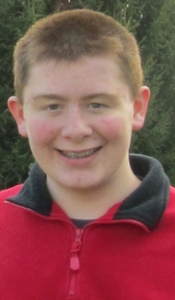The Dyslexic Kids Organization
by Scott Forsythe, Executive Director of Dyslexic Kids
When I was little, my parents and teachers noticed that I had difficulty keeping up with the other children. I could not identify words or letters as easily as the other children, I could not tie my shoes, I could not remember a list of instructions, I could not write the letters properly, and I could not master the concepts of “left” and “right”. Children can be cruel when a child is “slow”. I had difficulty making friends and I spent most of my time by myself. One teacher even asked my parents to permanently remove me from her classroom because my inability to participate with the other children was “disruptive”. When a child is “different” he or she can feel overwhelmed, alone and afraid. It helps to have a supportive family, but it is equally important to find a supportive community in which you are surrounded by peers who can truly understand and help you.
A support group provides a sense of belonging that is crucial toward building your self-esteem. I searched for a support group, but they were all designed for parents and educators, rather than for the people who need it most: the children and teens. I decided to create a support group and in 2011, at the age of 13, I created Dyslexic Kids, an organization that provides information, support, mentoring and resources to children and teens with dyslexia. In addition to the website (DyslexicKids.net), I offer a free, interactive book about dyslexia, I provide free tutoring, and I regularly post news and information across most of the social media platforms.
We have an online support group for kids and teens with dyslexia in addition to regular meetings in Fort Wayne, Indiana. Each Dyslexic Kids support group meeting has a theme. For example, one theme was Assistive Technology, during which we discussed the variety of assistive technologies (AT) that have worked for each of us. We also had the opportunity to test different apps, programs and types of equipment and talk about why and under what circumstances we use each type of AT. While each of the support group members prefer different forms of AT, we are all in agreement that AT has made a huge difference in each of our lives.
We all have dyslexia, but we are all individuals with different symptoms, levels of severity and learning preferences, so it stands to reason that each of us prefers different forms of AT. Most of the support group members tried numerous forms of AT before we found something that worked for each of us. That is why an organization like the INDATA Project at Easter Seals Crossroads is such a gift. The ability to try each form of AT, risk-free and cost-free, allows each of us to find the tools that help us reach our full potential.
I strongly believe that with the right tools and a supportive network, every child with dyslexia can – and will – soar!

